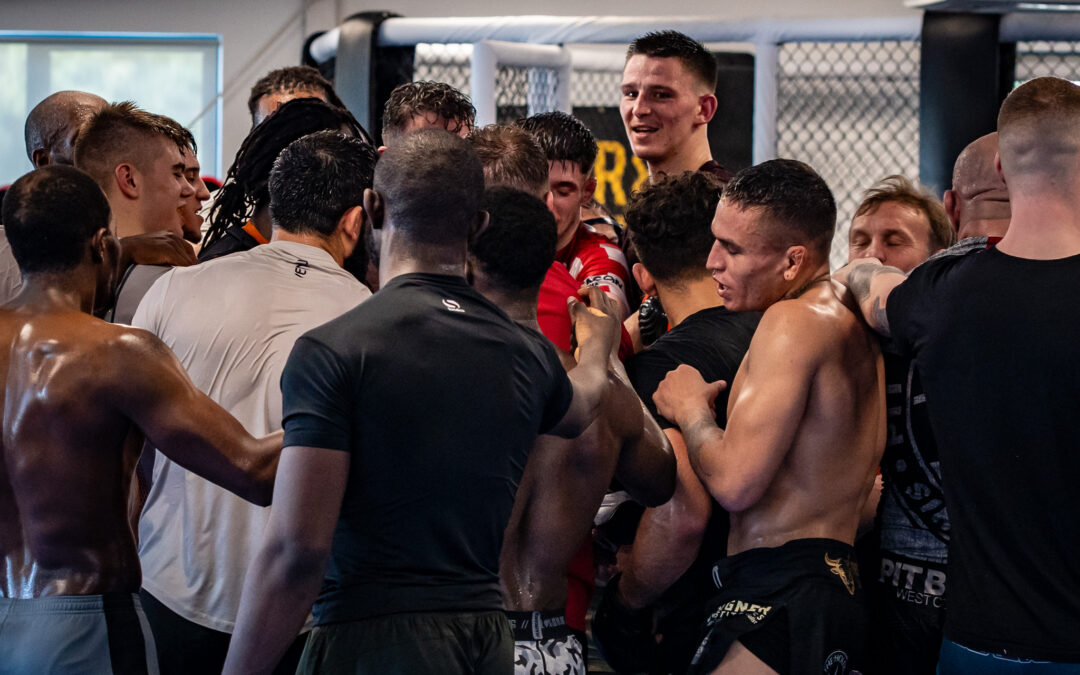Mixed Martial Arts (MMA) is not just a test of physical strength and skill; it is also a challenge to the mind, emotions, and spirit. As we spotlight the physical feats in the cage, it’s equally vital to recognize and prioritize the mental well-being of these athletes. Here’s a look at the importance of mental health awareness in MMA, the benefits of fitness, and the signs that it might be time to reach out for support.
Here at GBTT we take mental health seriously. Many of our athletes had faced struggles in their past and have developed coping strategies. It can not be understated how important regular physical activity plays in helping maintain general well-being and mental clarity.
The Silent Battle: Mental Health in MMA
MMA fighters, like all of us, are vulnerable to mental health issues. The pressure to perform, the strain of weight cuts, potential injuries, and the fear of losing can weigh heavily on an athlete’s mind. While physical bruises and injuries are visible and often addressed immediately, mental struggles can go unnoticed, making them all the more dangerous.
The Therapeutic Power of Fitness
Engaging in physical activities, such as MMA training, has a plethora of mental health benefits:
- Endorphin Release: Exercise releases endorphins, which are natural mood lifters. They help reduce stress and anxiety, making athletes feel happier and more relaxed post-training.
- Enhanced Self-esteem: Mastering a new move or technique can boost one’s confidence and self-worth. The journey of progress in MMA can be a significant self-esteem booster.
- Improved Sleep: Regular physical activity can promote better sleep, a crucial component for mental health and recovery.
- Stress Relief: Training can be an excellent way for fighters to divert their minds, giving them a break from daily worries and helping them cope better with stress.
- Social Connections: Being a part of an MMA gym means being part of a community. Social interactions and the camaraderie that comes from shared challenges and victories can be a buffer against feelings of isolation.
Warning Signs: When to Seek Help
It’s essential for fighters, coaches, and their support system to recognize the warning signs that indicate a potential mental health issue:
- Changes in Mood: Frequent irritability, sadness, or feelings of hopelessness.
- Social Withdrawal: Pulling away from friends, teammates, or avoiding training sessions.
- Shift in Performance: An unexplained drop in performance or lack of interest in training.
- Changes in Sleep Patterns: Insomnia or oversleeping can both be indicative of underlying issues.
- Unexplained Physical Complaints: Frequent headaches, stomachaches, or other unexplained physical issues can sometimes be manifestations of mental stress.
- Substance Abuse: Turning to drugs or alcohol as coping mechanisms.
- Excessive Fear or Anxiety: Being constantly on edge or experiencing overwhelming fears can be signs of anxiety disorders.
If you or someone you know exhibits these signs, it’s essential to reach out for help. Speaking to a mental health professional or even confiding in a trusted friend or coach can be the first step towards healing.
In Conclusion
The world of MMA, like any high-pressure environment, needs a strong emphasis on mental health awareness. Recognizing the therapeutic benefits of fitness is just one part of the equation. We must also ensure that fighters, and indeed all of us, can spot the warning signs and know that it’s okay to ask for help. In a sport where strength is celebrated, let’s remember that seeking support is a sign of strength, too.

